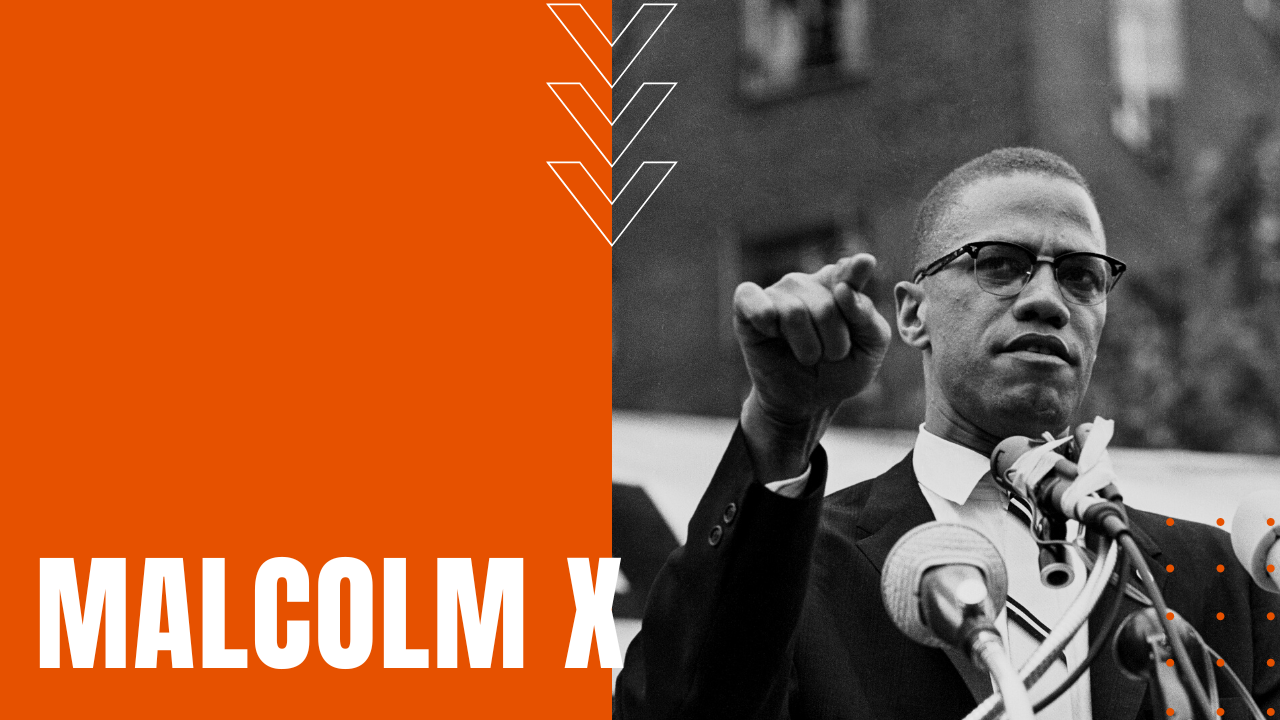Malcolm X: Prison, Islam, Racial Activism and Assassination

Born Malcolm Little in 1925 Omaha Nebraska, Malcolm X dropped out of school after the eighth grade, earning the nickname “Detroit Red” for dealing drugs in flashy zoot suits.
Malcolm X’s Introduction to Islam
Convicted of larceny at age 21, during his six-year prison sentence, Malcom X was exposed to the teachings of Nation of Islam leader, Elijah Muhammad, who preached that white people were the devil. Abandoning his slave name for the simple last name of X, after his release from prison, Malcolm became the minister of Harlem’s Mosque No. 7.
His skills as an orator grew the Nation of Islam from 400 members in 1952 to over 40,000 by 1960, including an African American heavyweight boxer, who changed his name from Cassius Clay to Muhammad Ali.
By Any Means Necessary
An advocate for achieving racial equality “by any means necessary,” his persistent calls for violence against the white man placed him at odds with Martin Luther King’s insistence on nonviolent protest during the height of the civil rights movement, at the same time placing Malcom X on the FBI’s watch list of subversives, prompting Bureau chief J. Edgar Hoover to encourage New York agents to “do something about Malcolm X.”
Suspended from the Nation of Islam over his charge of corruption within the organization, in 1964, Malcolm traveled to Mecca, where he experienced a profound spiritual transformation, including his eventual name change to El-Hajj Malik El-Shabazz. Founding the Organization of Afro-American Unity in June of 1964, Malcolm X’s adoption of a more moderate philosophy soon found resonance with the Student Non-Violent Coordinating Committee, after he identified racism instead of the white race, as the true enemy of justice.
Malcolm X Assassination
On February 21st, 1965, Malcolm X was assassinated by Nation of Islam members during a Unity rally at the Audubon Ballroom in New York City—a revenge killing for Malcolm’s public criticism of Elijah Muhammad and the Nation of Islam, making the short yet impassioned life of Malcolm X, one of the leading voices during the civil rights movement in America.
